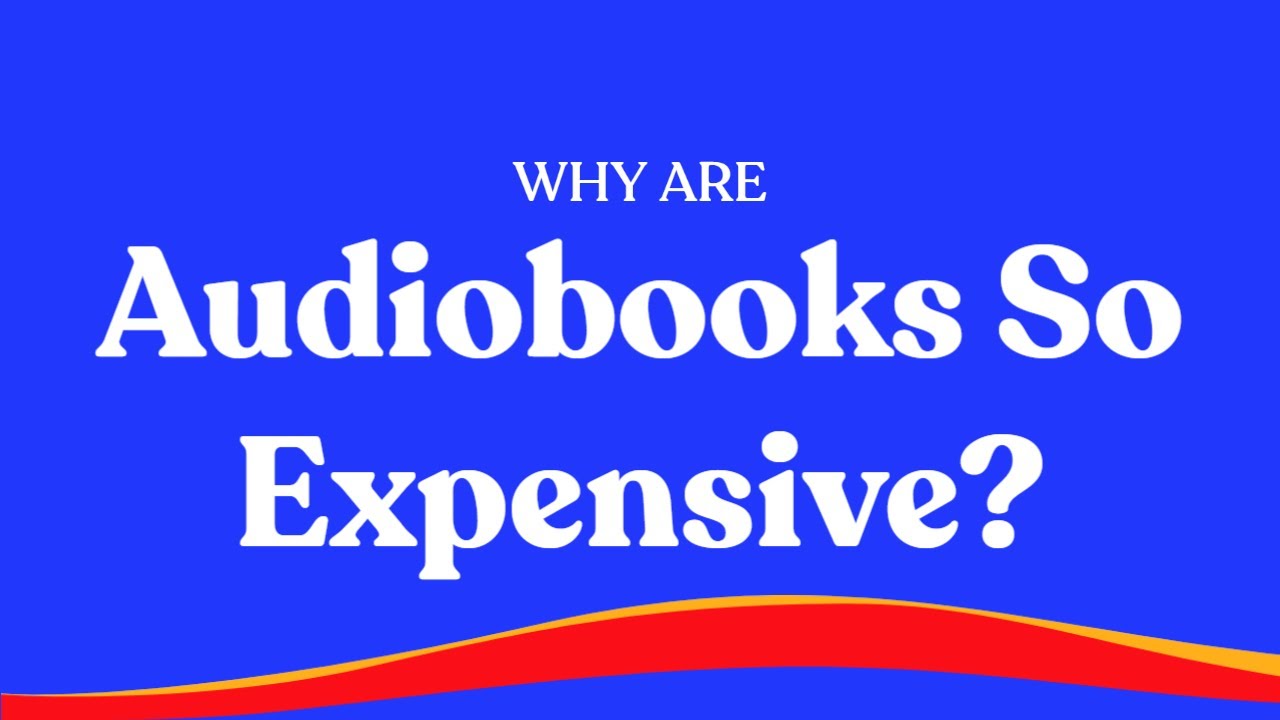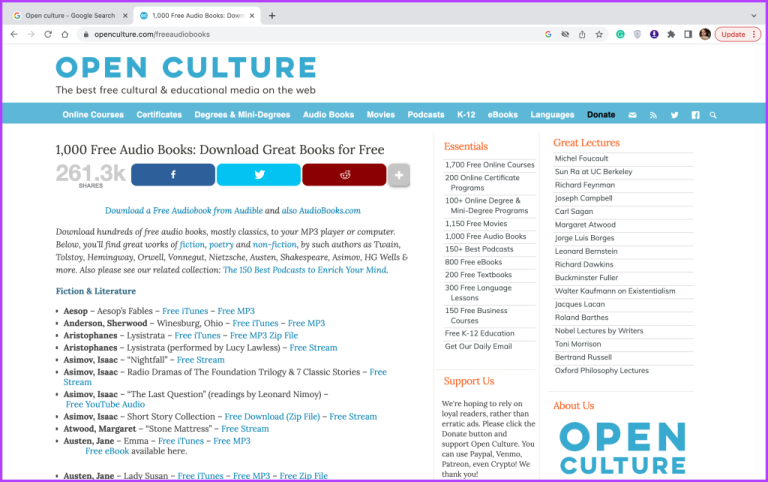Why Audiobooks Are Expensive?
Have you ever wondered why audiobooks are so expensive? It seems like a simple audio file shouldn’t cost as much as a physical book or an e-book. Well, my curious reader, let me enlighten you on the fascinating reasons behind the seemingly high price tags of audiobooks.
Now, before we delve into the nitty-gritty, let’s acknowledge that producing an audiobook is no easy feat. It involves a meticulous process that requires professional narrators, audio engineers, and production teams to bring the story to life in a captivating and immersive way. These talented individuals invest their time, skills, and resources into creating an audio experience that resonates with the listeners. And as the saying goes, quality comes at a price. So, it’s not just about the content itself, but also the effort that goes into crafting a top-notch audiobook.
But wait, there’s more to the story! Audiobooks also come with additional expenses, such as licensing fees, royalties, and distribution costs. Authors and publishers work together to ensure that the rights to the book are properly obtained, which involves legal agreements and financial transactions. Furthermore, the distribution of audiobooks involves platforms, apps, and streaming services, all of which require maintenance and infrastructure. All these factors contribute to the overall cost of audiobooks, making them a bit pricier compared to their traditional counterparts. So, the next time you come across an audiobook with a higher price, remember the work, passion, and expenses that went into creating that immersive audio experience.

Why Audiobooks Are Expensive?
Audiobooks have gained immense popularity in recent years, providing a convenient way for people to enjoy their favorite books on the go. However, one common question that arises is why audiobooks tend to be more expensive compared to their print or e-book counterparts. In this article, we will explore the factors that contribute to the higher cost of audiobooks and shed light on the reasons behind their pricing.
The Production Process
Creating an audiobook involves a complex production process that requires a significant investment of time, resources, and talent. Unlike print books or e-books, audiobooks require professional voice actors or narrators to bring the story to life. These narrators spend hours recording and editing the audio, ensuring that it is of the highest quality and meets the standards set by the industry.
Additionally, the production team includes sound engineers, editors, and producers who work behind the scenes to enhance the listening experience. They add sound effects, background music, and employ techniques to create a captivating atmosphere. All these elements contribute to the overall production value of the audiobook, but they also increase the production costs, which are ultimately reflected in the pricing.
Licensing and Royalties
Another factor that contributes to the higher cost of audiobooks is the licensing and royalty fees involved. Publishers often have to secure the rights to produce an audiobook version of a book, which can come with a hefty price tag. These licensing fees are necessary to compensate the authors and copyright holders for the use of their work in a different format.
In addition to licensing fees, audiobook production also involves royalty payments to the narrators. Just like actors in movies or musicians in songs, narrators are entitled to receive a portion of the sales revenue as compensation for their performance. These royalties can add up, especially for popular narrators who have a large following, further contributing to the overall cost of audiobooks.
Quality and Value
While the higher price of audiobooks may seem discouraging to some, it is important to consider the quality and value they provide. Audiobooks offer a unique listening experience, allowing readers to immerse themselves in the story while engaging their imagination. The production value, professional narration, and added elements make for a more enjoyable and enriching experience compared to reading a print book.
Furthermore, audiobooks provide accessibility to those who have difficulty reading or have visual impairments. They allow individuals to enjoy literature and gain knowledge through an alternative medium, making books more inclusive and accessible to a wider audience. The higher cost of audiobooks can be seen as an investment in the overall quality and value they provide.
Conclusion
In conclusion, the higher cost of audiobooks can be attributed to the complex production process, licensing and royalty fees, and the quality and value they offer. While audiobooks may be more expensive than their print or e-book counterparts, the immersive experience and accessibility they provide make them a worthwhile investment for many readers. So the next time you find yourself wondering why audiobooks are expensive, remember the effort and resources that go into creating these captivating listening experiences.
Key Takeaways: Why audiobooks are expensive?
- Audiobooks require professional narrators, recording equipment, and editing, which increases production costs.
- Production companies have to pay royalties to authors, publishers, and narrators, which adds to the overall cost.
- Audiobooks have a smaller market compared to print books, resulting in higher prices to cover the expenses.
- Production quality and immersive sound effects contribute to the higher price of audiobooks.
- Despite the high cost, audiobooks provide convenience, accessibility, and entertainment value for listeners.
Frequently Asked Questions
Are audiobooks more expensive than print books?
When comparing the cost of audiobooks to print books, it is true that audiobooks tend to be more expensive. There are a few reasons for this price difference. Firstly, producing an audiobook involves additional costs such as hiring professional narrators, sound engineers, and studio time. These expenses contribute to the overall higher price of audiobooks.
Additionally, the production process for audiobooks is more time-consuming compared to print books. Narrators need to carefully record and edit the audio, ensuring a high-quality listening experience for the audience. The extra effort and resources required for audiobook production justify the higher price tag.
Why do some audiobooks cost more than others?
The cost of an audiobook can vary depending on several factors. One of the main factors is the length of the audiobook. Longer audiobooks require more recording time and resources, which can result in a higher price. Similarly, books with multiple narrators or those that require special effects may also be priced higher due to the additional production costs involved.
Another factor that influences the price of audiobooks is the popularity and demand for a particular title. Bestselling books or those by well-known authors may be priced higher due to their market value. On the other hand, older or less popular books may have lower prices to attract more listeners.
Can I find cheaper alternatives to audiobooks?
Absolutely! If the cost of audiobooks is a concern, there are several alternatives you can explore. One option is to borrow audiobooks from your local library. Many libraries offer digital audiobook lending services, allowing you to access a wide range of titles for free or at a minimal cost.
Another alternative is to subscribe to audiobook streaming services. These platforms often offer affordable monthly subscriptions that give you access to a vast library of audiobooks. Additionally, keep an eye out for sales and discounts on audiobook websites or apps, where you can find reduced prices on select titles.
Do audiobooks offer value for their higher price?
Despite being more expensive, audiobooks offer unique value that may justify their higher price. One of the main advantages of audiobooks is the convenience they provide. You can listen to audiobooks while driving, exercising, or doing household chores, allowing you to make the most of your time.
Furthermore, the narration in audiobooks adds a new dimension to the storytelling experience. Skilled narrators bring characters to life through their voice acting, enhancing the overall enjoyment of the book. This immersive experience can make the higher price of audiobooks worthwhile for many listeners.
Are there any cost-saving tips for purchasing audiobooks?
If you’re looking to save money on audiobooks, there are a few strategies you can try. Firstly, consider subscribing to audiobook services that offer unlimited listening for a fixed monthly fee. This way, you can access a wide range of audiobooks without having to purchase each one individually.
Additionally, keep an eye out for sales and promotional offers on audiobook platforms. Many websites and apps regularly offer discounted prices or bundle deals on audiobooks. Lastly, consider joining online communities or forums where users share recommendations and sometimes even free audiobook codes, allowing you to enjoy audiobooks at no cost.
Why Are Audiobooks So Expensive?
Final Thought: Why Are Audiobooks So Expensive?
In conclusion, the high cost of audiobooks can be attributed to several factors. Firstly, the production process of creating an audiobook involves more than just the author’s work. Narrators, sound engineers, and production teams all contribute to the final product, resulting in additional expenses. This collaborative effort ensures that the audiobook maintains a high standard of quality, but it also drives up the overall cost.
Another factor that affects the pricing of audiobooks is the demand for this format. Audiobooks have gained immense popularity in recent years, leading to an increased demand from consumers. Publishers recognize this trend and capitalize on it by pricing audiobooks higher than their print or e-book counterparts. Additionally, the licensing fees associated with using copyrighted material and the distribution costs of delivering audio files further contribute to the higher price tag.
While the cost of audiobooks may seem steep, it’s important to remember the value they provide. Audiobooks offer a unique and immersive reading experience, allowing listeners to enjoy books while engaging in other activities. The convenience and accessibility they offer make them a worthwhile investment for avid readers or those with busy lifestyles. So, the next time you come across an expensive audiobook, remember the effort and resources that go into its creation, and consider the enriching experience it can provide.






